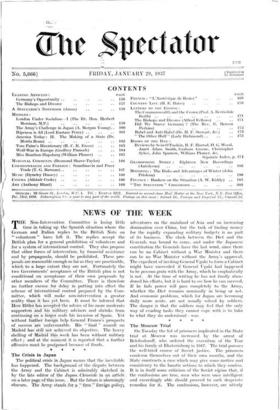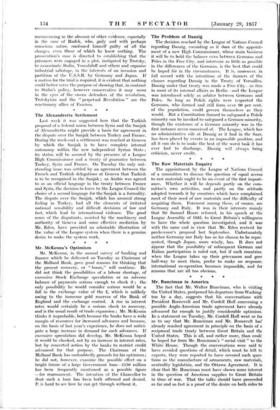The Moscow Trial On Tuesday the list of prisoners implicated
in the State trial at Moscow was increased by the arrest of Belobodoroff, who ordered the execution of the Tsar and his family at Ekaterinburg in 1917. The trial pursues the well-tried course of Soviet justice. The prisoners condemn themselves out of their own mouths, and the State constructs a case which may give some motive and consistency to the lunatic actions to which they confess. It is in itself some criticism of the Soviet regime that, if the confessions are true, men who were once intelligent and exceedingly able should proceed to such desperate remedies for it. _ The confessions, hoWever, are utterly unconvincing in the absence of other evidence, especially in the case of Radek, who, gaily and with perhaps conscious satire, confessed himself guilty of all the charges, even those of which he knew nothing. The prosecution's ease is directed to establishing that the prisoners were engaged in a plot, instigated by Trotsky, to assassinate Stalin, Voroshiloff and others and organise industrial sabotage, in the interests of an invasion and partition of the U.S.S.R. by Germany and Japan. If a motive for the trial is required, it is evident that nothing could better serve the purpose of showing that, in contrast to Stalin's policy, however conservative it may seem in the eyes of the sworn defenders of the revolution, Trotskyism and the 'perpetual Revolution " are the reactionary allies of Fascism.
* * * *























































